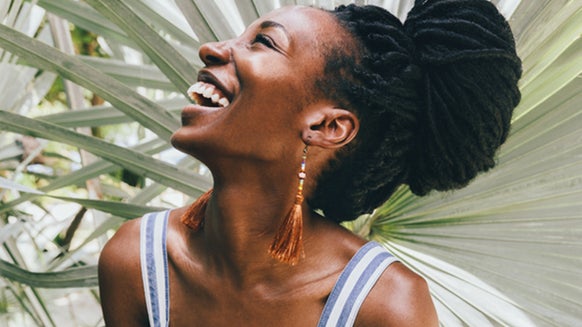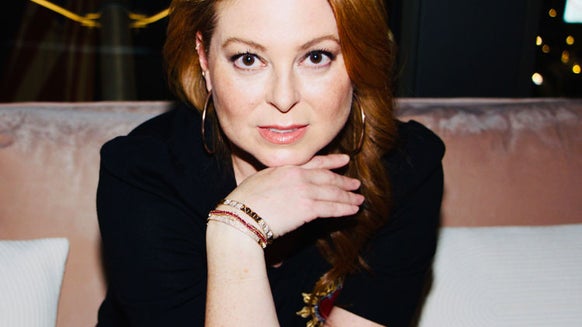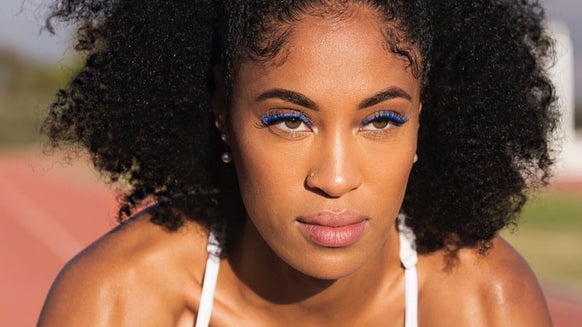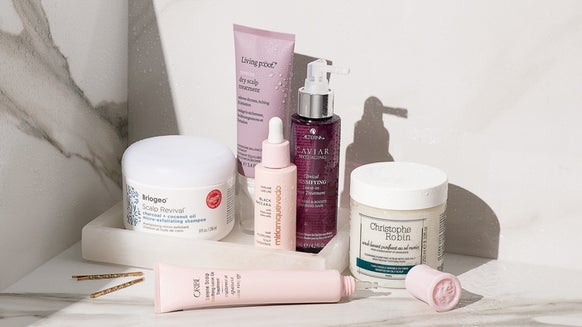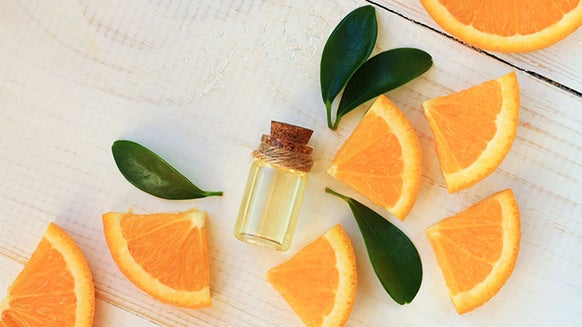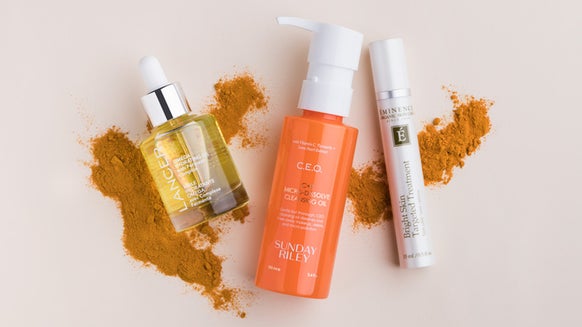I’m an Esthetician Specializing in Multi-Ethnic Skin Care. Here’s What We Need to Understand About Treating African-American Skin
“Oops!” is the last thing you want to hear your esthetician exclaim in the middle of a facial. I still have the scar from an “oops” that another esthetician, a colleague at my first spa job, made while attempting to do extractions. She used her tool too aggressively, and it slipped, tearing my skin (which she had already exfoliated and steamed). But often estheticians are learning on the job, because there are big gaps in our training here in the US—especially when it comes to understanding multi-ethnic skin.
When I attended esthetics school, my classmates and I were taught from a Eurocentric point of view, and our training didn’t really include other ethnicities. I had decided to enroll after working as a makeup artist in Milan, New York and eventually Los Angeles, where I had a multi-ethnic client base that included celebrities and notable figures. I saw how my clients’ skin was transformed after a series of treatments with a famous facialist in Beverly Hills. I thought, “I want to know how to get to the root of my clients’ skin concerns.” Rather than covering up imperfections in the skin, I wanted to know how to treat and understand skin at its core level.
In school, I remember other students saying to me, “I don’t want to give you a facial because I might cause inflammation, and if I cause inflammation, you’re going to hyperpigment.” This is a common way of thinking among new skin professionals, but it’s misguided. Now, as an educator, I address these misconceptions in my trainings. You never want to unintentionally cause inflammation, no matter what the client’s ethnicity.
Melanin Is Your Best Friend
I start each class with the statement that melanin is really our skin’s best friend. Its job is to protect the DNA inside the nucleus of the cell, and so what we think of as a tan is really an immune response. I call skin of African descent “reactive” skin. It’s reactive to injury and to UV radiation, and because of our geographical place of origin, it was created to be über-protective.
So, we want to be kind and gentle to our friend melanin. Rather than fighting unwanted pigmentation with lunchtime chemical peels and overuse of hydroquinone, approach it from a loving, nurturing point of view. It’s just trying to protect you, so it’s not like we have to zap it, burn it off or scrub it off. Instead, we can gently teach those cells, retrain those cells to respond differently. And if we understand that, we can consciously avoid causing an adverse reaction.
I’d like to see our industry work harder to formulate skin care regimens from the perspective of healing and finding balance, rather than triggering the cycle of inflammation. These aggressive treatment regimens were designed for skin of European descent, but are challenging for everyone else.
My dream is for a multi-ethnic industry where everyone is represented. I’d love to see formulators, trainers and marketing managers of every ethnicity—not just having a seat at the table, but being heard, contributing to how products are formulated from inception.
Why Beauty Needs Diverse Perspectives
We as skin care professionals have an opportunity to reframe how the public thinks about beauty. I had a coaching client who shared a story about an African-American woman who was told by an esthetician that they didn’t know how to treat someone that dark. For a person who’s had a lifetime of being told that they’re unattractive because of their skin tone, that can be traumatizing—like picking a scab off an old wound.
It’s a feeling I can relate to. At the age of six, I was diagnosed with minor motor epilepsy, and for seven years was given a medication that contained steroids. I developed all of the characteristic features of someone who is on a steroid: moon face, swollen gums, loose teeth. At 13, through studying transcendental meditation, I was able to normalize my brain waves and the next time I had an EEG test, the patterns came back normal. But I still felt like a misfit because I identified with that person who I saw in the mirror for seven years. From the courses I create to the brands I choose to consult, this experience informs my work to this day.
I don’t know if it’s my spiritual practice or the way I was raised, but I believe we all are innately perfect, whole and complete. I recently had a client who said, “You’re going to help me glow.” I said, “No, you’re already glowing. I’m just going to clear away a little bit of the film, so that you can shine even brighter.” What we in the beauty industry do is merely adding a little gloss, a little shine to what our clients already are. And each of them, no matter their skin tone, should come out of the treatment room vibrating a little higher because of the experience.

From the latest hair and makeup trends to the best solutions for your skin issues, we've got all your beauty concerns covered!
